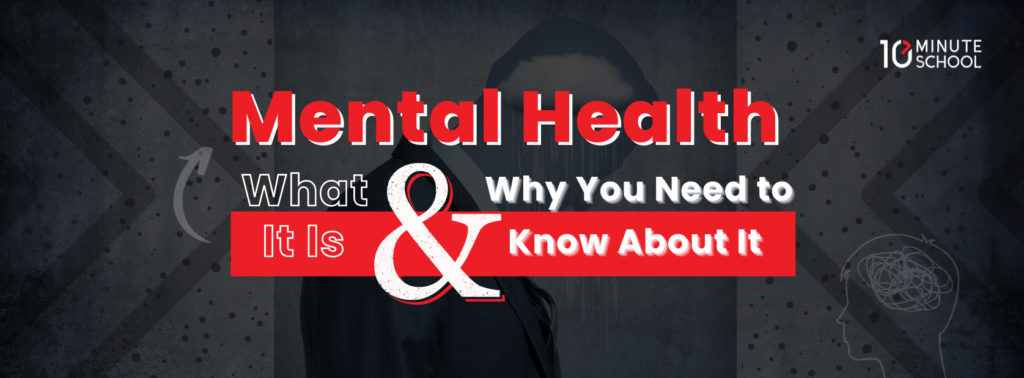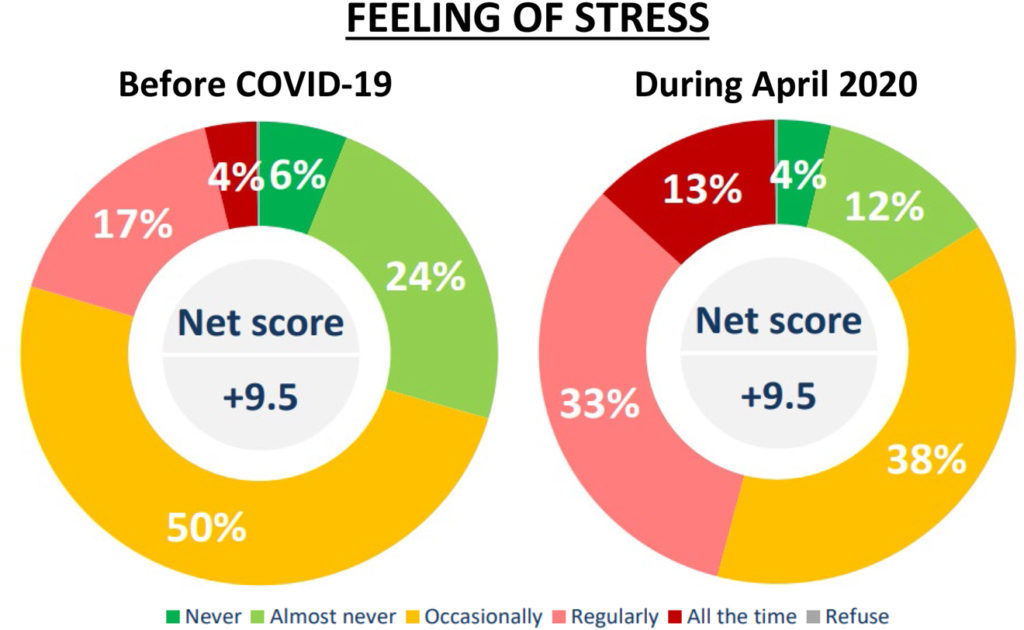Mental health refers to the emotional, physical, and social well-being of a human being. It specifies how we feel, think and behave. It can affect one’s daily living, personal relationships, and physical condition. Mental health awareness is important in every stage of life. It is equally important for people of all age groups, including kids, teens, adults, and senior citizens.
World Health Organization (WHO) stresses, “Mental health is a state of well-being in which an individual realizes his or her own abilities, can cope with the normal stresses of life, can work productively and is able to make a contribution to his or her community.”
Factors that work behind mental health disorder
Mental health is recognized as one of the most important issues for the current generation because Gen Z tops as the most anxious generation in the history of mankind. Anyone can develop a mental health disorder regardless of age, sex, ethnicity, and income. Some of the key reasons are stated below:
- Economic pressure: People with limited or restricted financial ability are more likely to fall on mental unwellness compared to individuals who are better off. Research findings show that with better education, occupation, and standard of living, people are more likely to have a more stable mental condition.
- Biological: Having genes that suffered from mental health disorders increases one’s chances of suffering from mental health issues too.
- Sexual harassment, violence, gender discrimination, social dependency, social exclusion, unhealthy manner of living, human rights violation, long-term physical illness, etc. can directly affect one’s mental health.
Common mental health disorders
There are nearly 300 mental health disorders listed in DSM5, a handbook used by mental health professionals. The most common types of mental illness are as follows:
- Depression
- Anxiety and panic attacks
- Psychotic disorder (such as schizophrenia)
- Bipolar disorder
- Anger
- Eating disorder
- Trauma/Abuse related disorders
- Personality disorder
- Addiction disorder (such as drugs & alcohol)
There are plenty of debates within the medical community regarding the classification of mental health disorders, specifically on which should and which shouldn’t be included within the spectrum. Some of the conditions stated above may not be considered as a mental health issue in certain regions. Cultural and national differences among societies make these disorders more or less acceptable to the people living in different regions.
Why mental health matters
Mental illness matters as much as any other disease because it can take away the very essence of life out of someone, as easily as any other disease. Long-term depression can lead to suicidal ideation and if left untreated, can lead to suicidal attempts.
People suffering from mental health disorders are often vulnerable both emotionally and physically. It weakens their immune system. Thus, sufferers are more likely to fall ill physically as well and take longer to recover from it.
Stress and anxiety release stress hormones which speed up our breathing, leading to cardiac ailment.
Many people use harmful substances as a coping mechanism that ends up harming their nerve tissues.
They lose interest in things they once enjoyed. They cut back on their hobbies and preferences and develop a feeling of indifference towards everything. Hence, it causes them to have a detrimental relationship with friends, colleagues, and family members.
How mental health affects education
Unfavourable mental conditions lead to hopelessness. Sufferers start to think of themselves as unworthy. Their performance at school and work may decline as their confidence drops down. Some people end up dropping out or withdrawing from their courses. It may lead to poorer performance, lower time management and task completion incentives. People often find it hard to solve even the simplest of problems as mental unwellness intensifies.
[ten_Ms_ad type=”banner” ad_id=”66982″]
Mental Health during lockdown
The effect of the COVID-19 lockdown on our mental health can be overwhelming. Many who were not suffering from mental issues prior to the pandemic also fell under its grasp during the pandemic. Mourning, isolation, drop in income, financial difficulties, insomnia, PTSS, and fear, all can trigger or exacerbate mental health problems. As people have to maintain distance from family and loved ones, they often fall into distress.
For Children and adolescents, ‘Stay-at-home’ orders combined with a stressful family environment can have a negative impact on social, cognitive, and emotional development. Domestic violence and child abuse are more prevalent among children from poor socioeconomic backgrounds.
Due to the expectation to maintain academic excellence throughout the transition to online learning, school closures have also resulted in an increase in anxiety (22–25 percent) and depression (17–20 percent) levels.
Break the stigma, Break free
When we suffer from mental health disorders, instead of seeking out help, we often hide the issue. As a result, long-term illness impacts us beyond limits. We feel ashamed to speak out because our social stigmas induce us to think that we are not normal. It is very important that we break this stigma because mental disorders are completely normal health conditions. It’s hard to know how someone truly feels unless they decide to express it. Hence, we need to normalize seeking help when one feels that he/she has mental health disorders.
The social stigma regarding mental health is much more common among Asian countries such as China, India, Bangladesh, Pakistan, Indonesia, etc. whereas European countries are more open to providing mental support to the people around them. Stigma spreads when we don’t talk about it. When we communicate with one another, the problem shrinks and loses its grip on our lives. We can set each other free by not being ashamed of our mental health issues. Because our mental health has a huge impact on our lives, we must eliminate the stigma.
Final Thoughts
We retake authority over our lives when we become real and we deprive ourselves by ignoring the existence and value of mental health in our daily lives. We lose our capacity to solve issues and discover answers. We need to accept that life is meant to have different stages. We will have ups and downs, happiness and sadness, wins and gains, calm and emotional breakdowns as we thrive. Accepting and seeking help is the key to overcoming mental health disorders.






আপনার কমেন্ট লিখুন